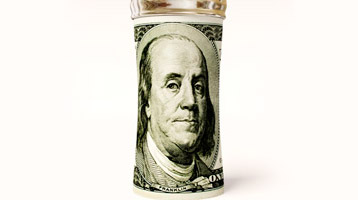Very simply, criterion behavior focuses on what you, as an individual, bring to the table. Your imagination, inventiveness, communication and cognitive skills, work ethic, character, personality, courage, self-respect, and respect for other people are crucial to success in life. Ultimately, they are much more important than what your father does for a living, your zip code, or the reputation/rating of your college. These factors can matter in terms of networking opportunities and social ... Continue Reading
The Psychology of Commerce
Consider the following statement: “The national budget must be balanced. The public debt must be reduced; the arrogance of the authorities must be moderated and controlled. Payments to foreign governments must be reduced if the nation doesn’t want to go bankrupt. People must again learn to work, instead of living on public assistance.” Would you hazard a guess at when this warning was uttered and by whom? These statements were made over 2,000 years ago by Roman author, orator, and ... Continue Reading
Passion/Talent Based Learning – PTBL: A Frank, No-Nonsense Conceptual Model (MM101)
Passion and talent are necessary precursors to competency and skill-set development. Passion is the fuel and driver for success in any field. G-d-given by definition, talent speaks for itself. At the same time, skill sets cannot be built if the student’s passions are not assessed, stimulated, and trained up. Competency-based learning has a deservedly rich history. Noted scholars have contributed to and enhanced this field (Dubois & Rothwell, Shandler, Spencer, and many others). In the ... Continue Reading
Jamie Dimon Redux: “Warrior King?”
Earlier this year, I posted an article entitled Are Dimons Really Forever? What Makes Jamie Run… Jamie Dimon is an industry superstar. In a recent Vanity Fair article, William Cohan proclaimed him King of Wall Street. Mr. Dimon is widely respected among his peers. I believe Mr. Cohan feels Jamie Dimon to be a modern-day King in the sense that he is the finest and most important person in his sphere – American Wall Street Bankers. Dimon did not inherit his position, he actually earned it. He ... Continue Reading
Empowerment Begins in the Office
Too Close to Home…Too Close for Comfort Retail stockbrokers are shareholders. Not only are they co-owners of their company, but they are on the front line in a profession where money and trust are their stock in trade, in a world riddled with money-madness. It is not uncommon for brokers to work for firms that have mismanaged their personal assets, their retirement accounts comprised as they are primarily of company stock. Lehman may be remembered for setting the standard in this arena, but ... Continue Reading
How Sour is Your Lemon?: Toxic Product Syndrome
Automobiles are marketed along two major dimensions: structural quality and consumer image. How these variables interact raises interesting issues concerning theory vis-à-vis consumer psychology and markets. When corporate messages of quality and image are asymmetric – and possibly disparate – a psychological syndrome can develop among various players that is adverse to the market. This syndrome is called Toxic Product Syndrome (TPS). The notion of a syndrome derives from ancient Greek; the ... Continue Reading





